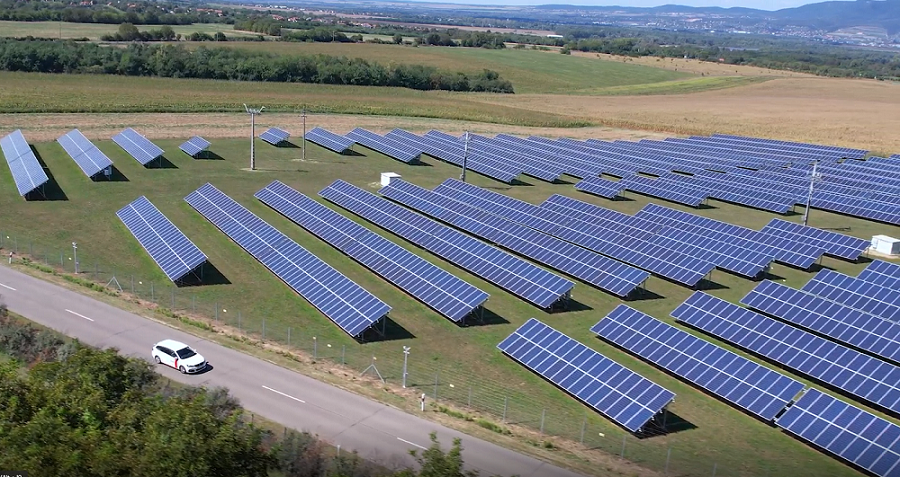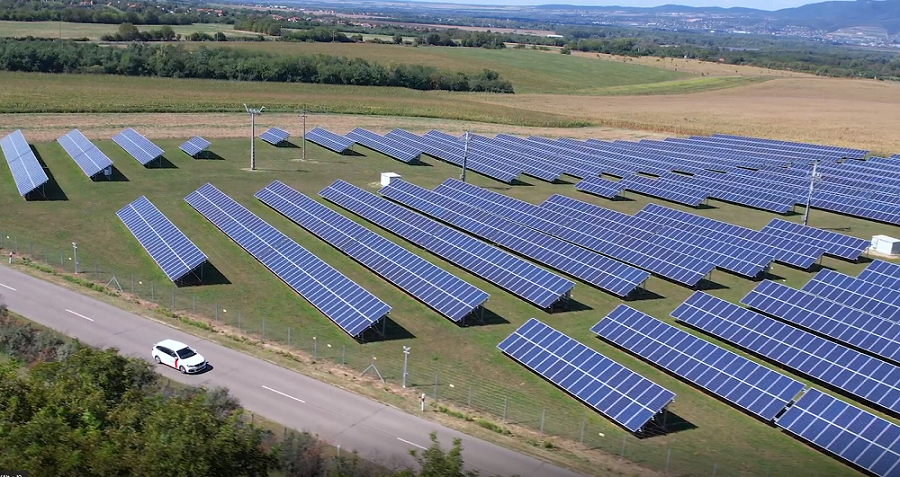High Inflation Makes Talent Retention Crucial - Hays Survey

Talent retention has become more crucial for companies as 2023's high inflation figures made non-wage benefits unfavored by workers, according to Hays Hungary's Salary Guide 2024. The Hungarian sister of global recruitment and human resources service provider publishes a yearly survey to assess the local labor market.
After a tough 2023, employers in Hungary face difficulties as the new year unfolds.
"The unfavorable economic environment has added to the existing workforce challenges. Retention has gained an even greater emphasis, and a lot of companies have responded to the obstacles of the past year with organizational restructuring, alongside wage increases," Tammy Nagy-Stellini, regional director Hays Hungary and Romania, writes in the survey's preface.
In 2023, 22% of employees probed by Hays Hungary said they saw a 10% salary increase. Some 19% of the respondents received a 15% increase, 17% received no increase at all, 15% received a boost of more than 20%, 12% received up to 20%, and 10% received up to 5% boost. Hungary's economy is projected to have contracted by 0.8% in 2023, and the year-on-year inflation rate stood at 17%, according to the latest figures by the European Commission.
Gearing up for 2024, when the EC forecasts a 4.5% y.o.y. inflation rate, employees nurture high expectations. Most (30%) expect an increase between 5-10%, while 19% hope for 10-15%, and 9% hope for 15-20%. However, there is also a significant change in employer intentions, as only one in ten companies plan further inflation-linked salary increases (10%), compared to 17% last year.
Proportion of Companies Planning to Raise Wages Grows
Tibor Katona, executive director CEE and commercial director at Hays Hungary, highlighted significantly more noticeable differences compared to the intentions from a year ago regarding the salary increase plans for 2024. The proportion of companies planning the usual annual salary increase jumped from 44% to nearly 62%, but the extent of the increase appears to be declining. Compared to last year's intentions, which mostly ranged from 10-15%, this year, four out of ten employers surveyed (42%) anticipate a lower increase, between 5-10%. Plans for higher increases, between 15-20%, are considered by only 5% of companies (a year ago, this was 17%).
Last year posed several challenges to employers, as business opportunities dwindled, orders were delayed for many, and retaining employees remained a constant challenge, according to the guide. Weathering the storm, employers mainly focused on organizational restructuring, fine-tuning operations, and introducing inevitable price increases to their products and services.
Looking towards the current year, it appears that although there were some challenges, the job market has managed to overcome the impacts of inflation and recession that were experienced in 2023. However, Hays experts warn that the market has not fully recovered yet, and more progress is still needed.
According to Katona, although employers are slightly more optimistic about entering 2024 than the previous year's survey, the majority are still rather pessimistic about the macroeconomic changes in the next one to two years. Conversely, neutrality or rather optimism characterizes the employee side regarding the long-term economic outlook for two to five years.
In 2024, the focus is primarily on process optimization (26.9% of respondents) and business development (26.5%), while retaining previously leading positions (24.9%) has fallen to third place. Although in 2023, companies were much more likely to suspend ongoing projects than they had anticipated a year earlier, this trend has slightly decreased as the new year kicked off. Nearly half (48%) of the participating employers plan to continue their ongoing projects as originally planned or launch new ones in 2024.
Job Satisfaction Stagnant
The majority of respondents (78%) saw their salaries increase in 2023. Seven out of ten (70%) are satisfied with their current jobs, which is consistent with the previous year's ratio. There doesn't seem to be any significant change in overall satisfaction with salaries compared to previous years (60% satisfied, 40% not). According to László Vizkeleti, a director at Hays Hungary, this suggests that, despite shrinking business opportunities, employers have largely managed to keep up with unusually high inflation in terms of wages.
At least, employee dissatisfaction has not increased this year. Nearly 90% of the participating companies had some form of salary increase in 2023, with the majority exceeding 10%. This is a significant achievement considering the economic environment and is likely driven primarily by the need for retention.
Employee satisfaction also depends significantly on non-wage benefits, among which, a year ago, cafeteria benefits led the way. However, flexible working arrangements are the absolute favorite this year. It has become such a high expectation among employees that its existence often provides a significant competitive advantage during recruitment. Therefore, companies that can afford it generally offer this, according to 62% of the surveyed businesses.
"Competition for skilled candidates is expected to remain intense in 2024. Employers should prioritize vocational training, as well as offering flexible working hours. Professional development and work-life balance are just as important to employees as salary," Nagy-Stellini writes in the introduction.
Despite nearly a quarter of respondents feeling that there are more job seekers in the market than in previous years, the lack of qualifications and salary demands continue to pose difficulties. Nearly half of the surveyed employers believe they have few qualified candidates to choose from, and salary demands are often unrealistic.
"The shortage of professionals has been a long-standing challenge in most industries, and it seems it will continue to be with us," said Vizkeleti.
SUPPORT THE BUDAPEST BUSINESS JOURNAL
Producing journalism that is worthy of the name is a costly business. For 27 years, the publishers, editors and reporters of the Budapest Business Journal have striven to bring you business news that works, information that you can trust, that is factual, accurate and presented without fear or favor.
Newspaper organizations across the globe have struggled to find a business model that allows them to continue to excel, without compromising their ability to perform. Most recently, some have experimented with the idea of involving their most important stakeholders, their readers.
We would like to offer that same opportunity to our readers. We would like to invite you to help us deliver the quality business journalism you require. Hit our Support the BBJ button and you can choose the how much and how often you send us your contributions.











